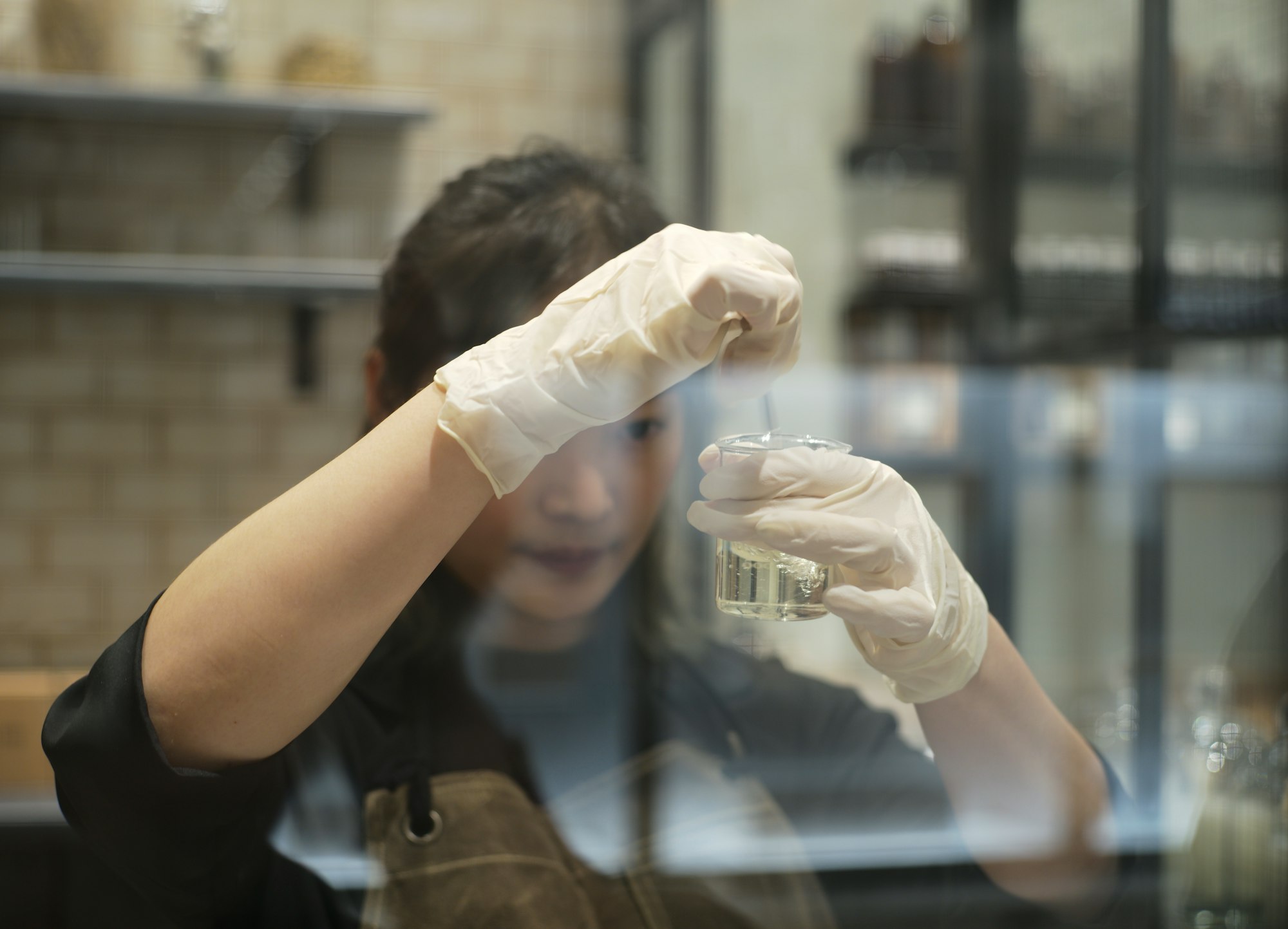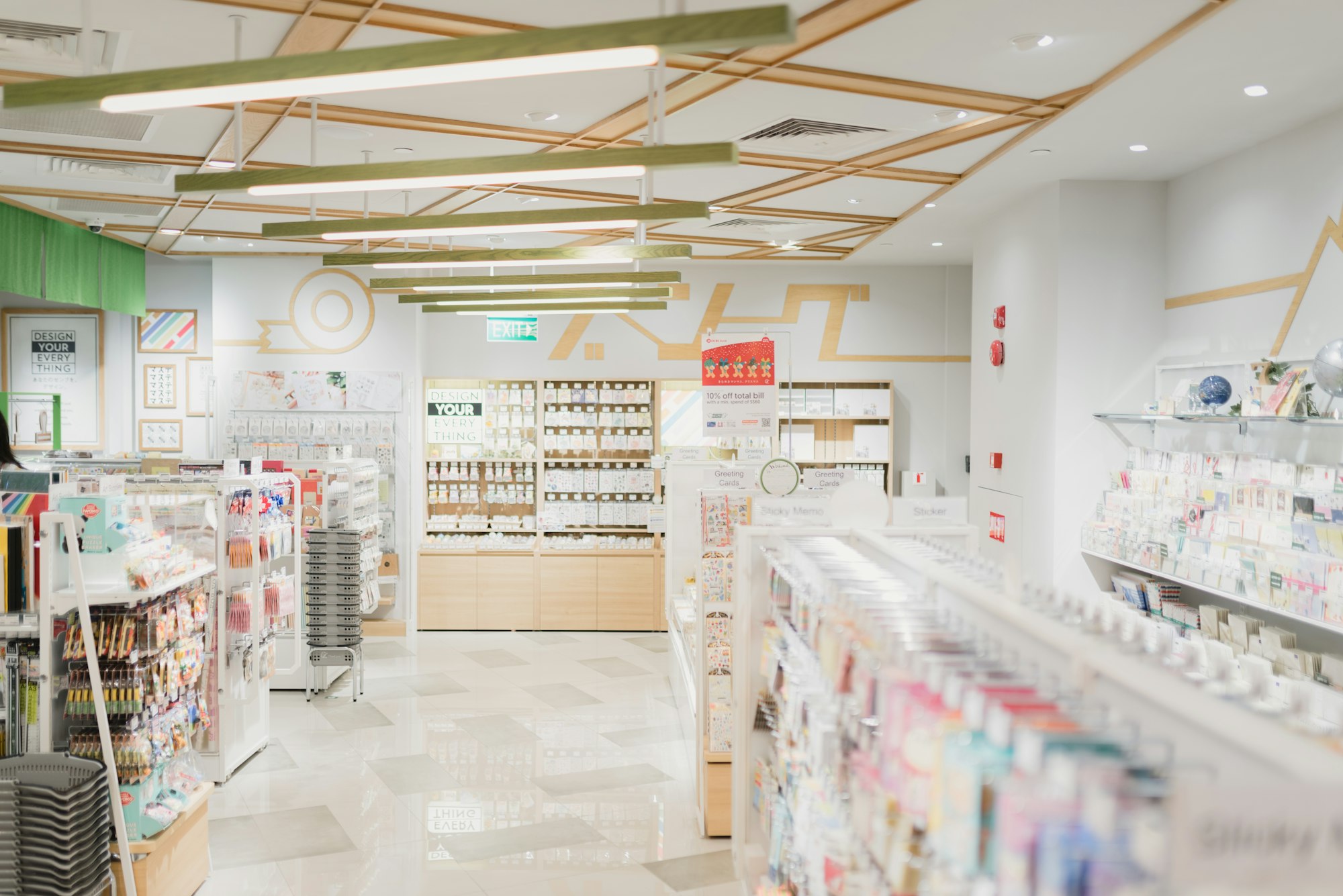Specialty Pharmacy: A Day in the Life with Dr. Cole Swanson
We welcome Dr. Cole Swanson to our Day in the Life Series to talk about Specialty pharmacy, his time in retail, and his experience as a diabetes educator!

With so many career options available to pharmacists after graduation, the "Day in the Life" series is meant to provide you with insights into what it's like to be a pharmacist in various areas so that you can pursue what's right for you!

Questions #1-2 cover general information about our guest, Dr. Swanson.
1. Tell us a bit about your background (school, training, etc…)
I grew up in North Augusta, SC and attended the University of South Carolina in Columbia for my undergraduate training. After 2 years there, I moved to Charleston, SC and attended the Medical University of South Carolina for my pharmacy training.
2. Upon completing/graduating pharmacy school, what was your dream job or where did you think your career path would lead you?
Upon graduating pharmacy school, I took a job with Publix pharmacy; I believed my early career path would be retail pharmacy. If you asked me my 'dream job' at the time, I probably would have said working as an ambulatory care pharmacist with chronic diseases (diabetes, hypertension, hyperlipidemia etc.). My plan was to possibly end up in the type of role eventually, which is why I pursued some additional opportunities outside of my primary job.
Questions #3-5 cover topics related to a day in the life of a pharmacist working at Publix.
3. What are some of the best and worst things about working in retail pharmacy?
Best things:
- Days off during the work week in most cases - very convenient for appointments.
- Getting into a consistent workflow and rhythm.
- Problem solving and being successful in resolving issues.
Worst things: Working nights and weekends for those that have to. It's the tradeoff for having days off during the work week, but didn't work well for my work-life balance. Generally in retail pharmacy, there is a lack of adequate staffing and support for pharmacists and technicians. The increase in clinical services provided by the pharmacists are increasing their responsibilities without a proportional increase in time/staffing to accomplish those tasks. This increases strain on the pharmacy staff and can be hazardous to patients while the companies benefit from the increased profits. To be fair, the retail pharmacies do operate on extremely tight margins due to poor insurance reimbursement, but I won't bore you with more of my rant.
4. How did your job at Publix help you for your current position in specialty pharmacy?
My previous retail position helped me in a number of ways. My current role is a mixture of operational and clinical work. Experience working with insurance claims and related issues has benefited me. Additionally, experience counseling, working quickly but accurately, and problem solving are all activities I utilize in both roles.
5. If you could go back and re-do pharmacy school, would you change anything or pursue a different job right after graduation?
If I'm being honest, I enjoyed my position in retail and learned a lot. But if I could go back, my goal would be to work in specialty pharmacy once I completed my training. While I currently do that, it was a winding path to get here. If I could do it again, I would pursue a general, community, or specialty PGY1 residency which is the most straight forward path to land a job in specialty pharmacy.

Questions #6-10 cover topics related to a day in the life of a pharmacist working as a Diabetes Educator:
6. How did you become a Diabetes Educator?
I was fortunate enough to work with the Palmetto Pharmacist's Network in Charleston, SC right after graduating pharmacy school. It is a program that partners with the City of Charleston to connect employees with diabetes educator pharmacists as part of the health insurance plan.
7. Did this position require special training or certifications?
The position only required an APhA certification for diabetes education, but I was able to use that experience to sit for the Certified Diabetes Care and Education Specialist exam (CDCES - formerly known as Certified Diabetes Educator).
8. What did you like the most about this position compared to your retail position?
I worked this position part-time on my off days. I had flexibility with scheduling patient visits depending on what worked for both of our schedules. I have always enjoyed diabetes education, and this position provided ample opportunity for 1:1 counseling without feeling rushed.
9. What is the biggest impact you think you had on patient care?
Probably motivating patients and helping them stay accountable for goals they set for themselves. I coordinated with providers to optimize pharmacotherapy, but I also did a lot of diet and lifestyle coaching.
10. How can current students or pharmacists best prepare for a job as a Diabetes Educator?
If managing diabetes and other chronic conditions is your passion, your best bet is to pursue a general or community PGY1 residency and a PGY2 ambulatory care residency. I have colleagues who have taken different paths, but the residency track is the smoothest.

Questions #11-18 cover topics related to a day in the life of a clinical pharmacist working in Specialty Pharmacy:
11. What are the main barriers to entry? (PGY1 or PGY2, fellowships, 3-4 years experience, etc…)
The job requirements to be a pharmacist in a specialty pharmacy are institution specific. Most do not require a residency or certain credentials, but many prefer 1 year of residency, a board certification, or the certified specialty pharmacist (CSP) designation. I will say that around 1/3 of the pharmacists I work with are residency trained, but none were hired right out of school without a residency. All have previous experience, specialty or otherwise, in lieu of a residency.
12. Can you provide some background into how you found specialty care as your field of interest/current job?
To be honest it was completely fortuitous: I applied for a generic 'clinical pharmacist' job at my current institution, and it happened to be a posting for the specialty pharmacy. I did not have a thorough understanding about what working with a specialty pharmacy entailed at the time, but I am glad I made the switch.
13. What are your responsibilities/tasks during a typical workday?
I work for a health-system specialty pharmacy, and we have pharmacists that work in 2 distinct roles. One set of pharmacists work in our mail order facility packaging and dispensing medications, while the others work out of a combination of office and clinic space. I am the latter. Part of my job ensures the appropriate processing and billing of specialty medications, supporting technicians with prior authorization submissions, completing clinical appeals, and counseling patients who fill these medications with us. The other part is acting as a consult for providers and clinic personal related to access and appropriate use of specialty medications.
14. What are some of the challenges you face as a pharmacist working in specialty pharmacy?
The biggest challenge is the cost of specialty medications, which is why my role is important. We work extensively with insurance companies to obtain insurance coverage for the medications, and we have a host of avenues to pursue financial assistance when the medications are unaffordable.
15. How do you keep up with the ever-changing literature and new medications coming to market?
The most consistent resource I've used to stay informed on new drug approvals is through Medscape. You can sign up to receive emails when a new drug is approved, and (if it feels relevant to my practice) then I look into it further.
16. What are some of the most common questions you are asked on the job?
Many of the questions I am asked are related to medication access, so the most common from patients and providers is probably, 'How much is this going to cost?'
17. What is the biggest impact you think you have on patient care?
Finding ways to make these medications affordable to patients is where we have our biggest impact. Generally, there are a lot of hoops to jump through to obtain insurance approval. When that is not an option other patient assistance avenues can be complicated and time consuming. It takes a lot of time that the clinic staff may not have in a lot of cases or may not know how to navigate. It brings me a lot of job satisfaction to know that in many cases the patients would not be able to have these medications without our intervention.
18. What are some helpful tips for everyday pharmacists to know about specialty pharmacy?
An important realization I had when starting this role is that a prior authorization denial does not necessarily mean a patient is not going to be able to have a medication. You can still pursue insurance coverage through completing a peer-to-peer review, a first and second level appeal, and an external review in many cases. If insurance coverage is still not possible, many brand name medications have patient assistance programs that patients can apply for to receive the medication at no cost from the manufacturer if they qualify.

The following questions are meant to be fun and provide some insight into the culture and personality of these professionals!
1. Which pharmacy specialty is the best and why (not allowed to pick your own)
I have always heard that home infusion pharmacists have pretty good jobs. I have no experience to back that up and yet hearsay has made me envy them in the past.
2. If you could live in any movie universe, which universe would you pick and why? (Marvel, Star Wars, Avatar, etc)
It would have to be the Lord of the Rings.
3. What book or movie impacted you the most as a professional, or which book/movie would you recommend everyone read?
I read 'How to Win Friends and Influence People' by Dale Carnegie at the beginning of my 4th year of pharmacy school and I can't say that anything served me better in the beginning of my career.

